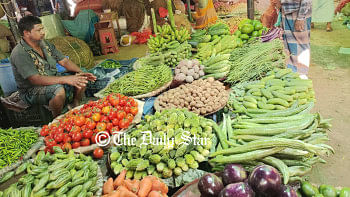Seven new sectors may get tax holiday
The government may extend tax holiday benefit to seven new sectors from the next fiscal year to encourage expansion of manufacturing activities, said an official of the finance ministry.
Transformers and nanotechnology-based manufacturing are likely to be two of the new sectors.
"The tax benefit may be given for a period of 10 years and the rate of tax to be reduced gradually to be fully phased out on the 11th year," said the official on condition of anonymity.
Currently, the government offers tax exemptions for periods of five to 10 years, depending on the location of the factories to be set up by entrepreneurs.
Some 26 industrial sectors such as manufacturing of active pharmaceutical ingredients, agriculture machinery, automobile, computer hardware, tyre and textile machinery get the privilege.
Investors will be able to reap the advantage of establishing such industries between July 1, 2019 and June 30, 2024.
From this fiscal year, the National Board of Revenue (NBR) extended tax break to six sectors to encourage manufacturing of goods namely mobile phone, home appliances, LED television, toys and recycling of plastics.
Other sectors that will become eligible for tax exemptions are likely to be announced by Finance Minister AHM Mustafa Kamal during the placement of the fiscal plans for the year 2020-21 tomorrow.
He may also seek to extend reduced corporate tax benefits for garments and knitwear sectors for two years to 2022 as the existing benefit will expire on June 30 this year, according to the NBR.
Apparel makers, who account for more than 80 per cent of the country's export earnings, currently enjoy 12 per cent corporate tax on incomes, nearly three times less than the current corporate tax of 35 per cent for non-listed companies.
The rate of corporate tax is 10 per cent for holders of green building certificates.
Exporters may also face 0.5pc tax at source of their export earnings from the next fiscal year as the existing 0.25pc tax benefit is set to end this fiscal year, said the official.
Income tax law stipulates that exporters pay 1 per cent source tax on proceeds of their exports. But the NBR cut the rate through notifications on several occasions during the past two years in the face of demands from exporters.
The NBR reduced source tax on export earnings of garment twice in fiscal 2018-19 -- from 1 per cent to 0.60 per cent in September 2018 and further to 0.25 per cent in January the next year -- following pleas from garment makers.
As 1 per cent rate of source tax on exports became effective at the beginning of this fiscal year in July 2019, the NBR slashed the rate to 0.25 per cent later in October and said the privilege would expire on June 30, 2020.
The official said changes are likely to be brought in the income tax to fix the source tax rate for exporters at 0.5pc from the next fiscal year with the objective to enable entrepreneurs to do long-term planning.
The move is likely to come at a time when the worst ever recession since World War II for the COVID-19 pandemic shattered global demands, leading to dip in earnings from shipments from Bangladesh.
Export receipts plunged 18 per cent year-on-year to $31 billion in July-May of the current fiscal year from that a year ago. However, shipments trebled to nearly $1.5 billion in May from just over half a billion in April this year, according to Export Promotion Bureau data.

 For all latest news, follow The Daily Star's Google News channel.
For all latest news, follow The Daily Star's Google News channel. 



Comments